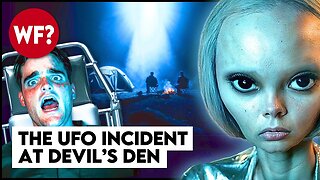Premium Only Content

Christmas : The Origin And Evolution
The history of Christmas is rich and multifaceted, encompassing religious, cultural, and historical elements. While many aspects of Christmas have evolved over the centuries, the celebration's roots are deeply intertwined with Christian traditions. Here's an overview of the history of Christmas:
1. Pre-Christian Winter Festivals:
Before the celebration of Christmas, various cultures around the world marked the winter solstice with festivals and celebrations. These festivities often revolved around the idea of the rebirth of the sun and the lengthening of daylight hours.
2. Christian Origins:
The choice of December 25th for Christmas is believed to be connected to the Roman celebration of the "Dies Natalis Solis Invicti" (the birthday of the unconquered sun), which took place around the winter solstice. The early Christian church chose this date to coincide with the Roman festival, providing a Christian alternative.
The birth of Jesus Christ is central to the Christian celebration of Christmas. The biblical narratives in the Gospels of Matthew and Luke describe the birth of Jesus in Bethlehem.
3. Early Celebrations:
The celebration of Christmas was not an immediate tradition in the early Christian church. In fact, some Christian denominations initially rejected the observance of Christmas because of its pagan associations.
By the 4th century, however, Christmas began to emerge as a widely celebrated Christian festival. The Roman Emperor Constantine officially recognized December 25th as the date of Christ's birth in 336 AD.
4. Medieval and Renaissance Periods:
During the Middle Ages, Christmas celebrations varied widely across Europe. In some regions, the holiday was marked by feasts and festivities, while in others, it was a more solemn religious observance.
The medieval Christmas traditions included nativity plays, caroling, and festive meals.
5. Reformation and Puritan Influence:
The Protestant Reformation in the 16th century led to different attitudes towards Christmas. In some Protestant denominations, the holiday was downplayed or even prohibited due to its perceived association with Roman Catholicism and pagan customs.
In England, the Puritans, who were influential during the 17th century, opposed the celebration of Christmas as they considered it too closely tied to Catholicism. Christmas was temporarily banned in England during the mid-17th century.
6. Victorian Era and Christmas Revival:
The 19th century saw a revival of interest in Christmas, particularly in England and the United States. The Victorian era, in particular, contributed to the popularization of many Christmas traditions.
The influence of writers like Charles Dickens, with his famous work "A Christmas Carol," helped shape the modern image of Christmas as a time of generosity, goodwill, and family.
7. Modern Christmas Traditions:
The exchange of gifts, the decoration of Christmas trees, the singing of carols, and the emphasis on family gatherings became central elements of the modern Christmas celebration.
Santa Claus, derived from the Dutch figure Sinterklaas, became a popular symbol of gift-giving, particularly in North America.
8. Globalization of Christmas:
In the 20th and 21st centuries, Christmas has become a global celebration, with both religious and secular observances. Different cultures have incorporated local customs into the holiday while embracing some of the universally recognized symbols and practices.
Conclusion:
The history of Christmas is a dynamic tapestry woven with religious significance, cultural influences, and historical developments. It has evolved over centuries, adapting to changing social and religious landscapes while retaining certain timeless themes of joy, generosity, and the celebration of light during the darkest time of the year. Today, Christmas is celebrated by millions of people around the world, each bringing their unique traditions and customs to this global festival.
-
 LIVE
LIVE
FreshandFit
5 hours agoLive X Censorship For Opposing Immigration?!
3,422 watching -
 LIVE
LIVE
Tactical Advisor
52 minutes agoNEW Budget Glocks | Vault Room Live Stream 011
518 watching -
 16:30
16:30
SNEAKO
7 hours agoNO FRIENDS IN THE INDUSTRY.
14.7K14 -
 6:19
6:19
BlackDiamondGunsandGear
19 hours agoHow Fat Guys can Appendix Carry
2571 -
 6:58
6:58
Gun Owners Of America
21 hours ago2024 Was Huge For Gun Rights, Here's Our Top 10 Wins!
6601 -
 15:50
15:50
Degenerate Jay
1 day ago $0.07 earnedJames Bond Is Being Ruined By Amazon? Make Him A Black Gay Woman?
4134 -
 15:18
15:18
DeVory Darkins
21 hours ago $6.42 earnedTrump Drops NIGHTMARE Warning on Joe Biden
15.8K23 -
 36:13
36:13
The Why Files
1 month agoAlien Implants Vol. 1: Devil’s Den UFO Encounter: What Was Found Inside Terry Lovelace?
49.2K36 -
 9:03
9:03
Alabama Arsenal
1 day agoAAC HUB 2K | Modern Features, Iconic Classic Looks
1761 -
 13:49
13:49
Dermatologist Dr. Dustin Portela
1 day ago $0.03 earnedDermatologist Reveals the Worst Things To Do To Your Skin
57